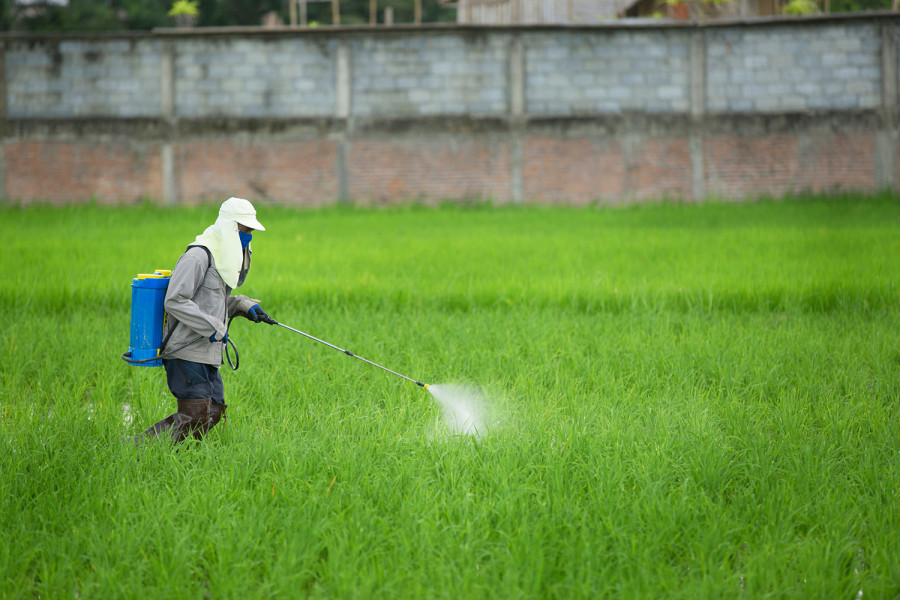National
Government mulls signing agreement with India to allow mutual recognition of domestic pesticide tests
Faced with massive public criticism, the government has finally decided to revisit a proposal India made in 2009.
Anil Giri
In response to the ongoing controversy over pesticide residue tests on imports of Indian farm produce, the government is mulling over signing a Mutual Recognition Agreement with India which provides reciprocal recognition for lab tests conducted in the two countries.
When two or more countries enter into a Mutual Recognition Agreement, they agree to recognise each other’s conformity assessments, which are tests conducted to ensure that certain products, services or processes meet predetermined standards, regulations or specifications. Numerous countries and economic blocs practise such Mutual Recognition Agreements, which primarily apply to vegetables, fruits, plants, animals, medicine and even health certificates.
India had proposed such an agreement in 2009, but the Ministry of Agriculture paid little attention to the issue, according to government officials familiar with the matter. But the public backlash over the Nepal government’s decision to recall pesticide residue tests, along with a Supreme Court interim order on June 16 that asked the government to conduct the tests, has led the government to renew discussions.
A draft agreement is currently being prepared and discussed among the line ministries, led by the Ministries of Agriculture and Industry, and a few rounds of talks have already been held with India, said Kedar Bahadur Adhikari, secretary at the Ministry of Industry, Commerce and Supplies.
“Once we sign an agreement with India, they will validate our lab testing certificates and we will do the same,” said Adhikari. “Both sides will then be subject to random tests that will be conducted on all export and import items where necessary.”
But trade analysts warn that Nepal should ensure it has all the required provisions in place before signing the agreement.
“We still lack legal provisions and infrastructure. India must be convinced that our laboratories are up to their standards,” said Posh Raj Pandey, an international trade analyst. “We also need to build national quality infrastructure so that we can test pesticide on our own products too.”
While the furore over the pesticide tests was continuing, Agriculture Minister Chakrapani Khanal had told the media that it would take at least a year to build pesticide testing infrastructure at the border.
But India, as per the 1993 trade and transit treaty, had agreed to support the strengthening and capacity building of Nepali laboratories at the border. India had also agreed to harmonise Nepal’s labs with Indian standards, which would allow India to recognise Nepal’s certificate, said Purushottam Ojha, a former commerce secretary.
“We had been urging the Ministry of Agriculture to set up an institutional mechanism with the Indian Agriculture Ministry so that issues like laboratory testing, quarantine, and food testing can be permanently resolved, but that never happened,” said Ojha.
But first, Nepal must ensure that its testing facilities meet international standards as prescribed by the World Trade Organisation. Testing should also be non-discriminatory, which would require Nepal to also test all imported items from China, other countries, and home-grown products too, said Pandey.
“The government initially introduced the provision of pesticide testing as a measure to decrease its trade deficit with India but the entire episode took another turn,” said Pandey. “The government should not be seen as protectionist in the name of decreasing the trade deficit.”
On June 17, the KP Sharma Oli government decided to conduct pesticide residue tests on all imported Indian vegetables and fruits at the Nepal-India border. Hundreds of Indian trucks laden with vegetables and fruits were forced to wait for days at the border due to the absence of testing facilities on the Nepal side. The Indian Embassy in Kathmandu, on June 29, wrote to the Ministry of Foreign Affairs, asking that tests be recalled as the testing requirement amounted to the imposition of a Non-Tariff Barrier.
The government then halted the pesticide test, causing a massive public uproar. The government’s decision was challenged at the Supreme Court and a bench of two Supreme Court judges on Tuesday issued an interim order to the government asking it not to halt pesticide residue tests until a final verdict is given.
But officials warn that several measures should be taken by the government before signing an agreement with India, which includes a six month prior notification to the World Trade Organization. Pesticide testing should be made mandatory for other items imported from China or a third country.
***
What do you think?
Dear reader, we’d like to hear from you. We regularly publish letters to the editor on contemporary issues or direct responses to something the Post has recently published. Please send your letters to [email protected] with "Letter to the Editor" in the subject line. Please include your name, location, and a contact address so one of our editors can reach out to you.




 8.54°C Kathmandu
8.54°C Kathmandu















